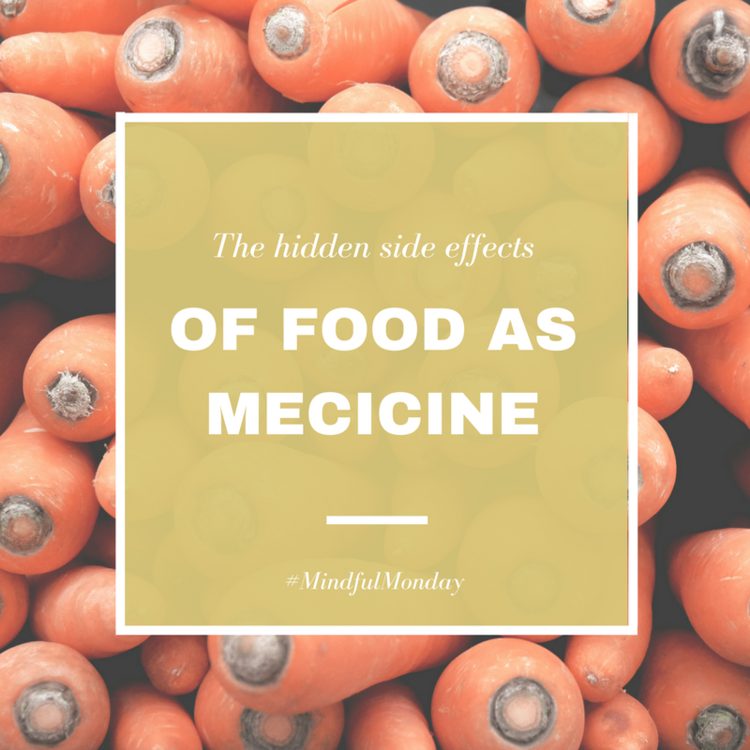When It Comes to Nutrition, Don't Overlook the Basics
Is it just me, or does it feel like there's overwhelming amounts of information out there about nutrition science?
Back when I first became a dietitian, I feel like the most controversial question I got was on sugar vs artificial sweeteners. Now I'm fielding questions about elimination diets, nutrigenomics, gut microflora, and the diet of Paleolithic human beings.
When I look back on what I learned almost 15 years ago (oy vey) in my first nutrition classes, it feels really outdated now. Which is understandable, because nutrition is a relatively new science, so I would hope to see big changes in 15 years.
Some of the new science is really cool. When I left school, my knowledge of probiotics basically extended to Activia yogurt. Now I can bore you to death with a lecture on research about how diet affects microflora, what specific strains of probiotic bacteria are best for what conditions, the mind-gut connection and how bacteria are involved, and fermented foods vs probiotic supplements. Things I would have brushed aside as "not evidenced-based," are now commonly accepted, for example the role of nutrition in mood and brain health. Integrative nutrition has become much more mainstream in the field of dietetics and I think that's a net win.
With food blogs and social media, nutrition science is SO easily available, which is good and bad. Everyone deserves access to information, and it's great to have it for free on the internet, but often times it's being disseminated by people who don't really have the knowledge to back it up. As someone who spent an ungodly amount of time studying organic chemistry, biochemistry, nutrition metabolism, anatomy and physiology (and got pretty good grades at it too!), I still get confused with some of the science. Shoot, the scientists themselves often get confused!
It's easy to get stuck in a rabbit hole of nutrition online, especially if you're struggling with a difficult to manage condition like IBS, hypothyroid, or PCOS, and not getting adequate help or relief from your doctors. There's a lot of distrust of medical fields, and some of it is totally valid.
I don't want to dissuade you from researching nutrition or other integrative therapies, because there may be something out there that's helpful for you. But as you dive into the intricacies and what's new and cutting edge of nutrition, don't overlook the basics.
In my practice, I've had clients who had spent years on elimination diets for IBS, only to see their symptoms go away after starting to eat balanced meals and snacks at regular intervals throughout the day. I've had clients with PCOS spend thousands on supplements for amenorrhea get their period back after just adding in a little more fat and protein. I've had one client who came to me with pages and pages of lab results from doctors offices and naturopaths testing to find the reason for her chronic fatigue, who finally felt energized after adding in adequate carbohydrate.
Again, I don't want this post to sound bashing of integrative nutrition, because I think there's a lot of science there that can be helpful. Plus, a lot of things that were dismissed as quack science when I was a newbie dietitian are now accepted as fact. But before you do a deep dive into nutrition, be sure to check off the basics.
Fuel your body adequately. No amount of elimination diets can make up for the inflammation that occurs when your body isn't getting adequate calories and nutrition. You can't restore your hormonal health when you're not getting in the fats and proteins that are the building blocks for hormones. You're not going to feel energized if your body is missing out on the main source of energy (i.e. carbohydrates).
Be sure to get in a variety of foods. When you're eating a wide variety, it's impossible to eat too much of any one food, or eat too little. Different foods contain different nutrients, so eating a wide variety helps to ensure you're getting the variety that you need. Remember, vitamins and minerals are needed for the metabolic reactions that occur at the cellular level, and no amount of supplements can replace that.
Make eating a pleasurable experience. Seriously, you absorb nutrients better when it comes from food you enjoy. And you could be eating the most nutritious food on the planet, but if it's not coming in a form that's pleasurable for you, either because the eating experience is stressful, or the food isn't tasty, then it's not actually healthy.
If you feel like you've lost sight of the basics, here's a post I wrote about gentle nutrition. You can also email me here if you'd like to set up a free 15 minute consult to see if we'd be a good fit to work together (I work with clients locally in Columbia, SC, and virtually throughout the US), or I'd be happy to recommend a dietitian in your area.
You might also like:




